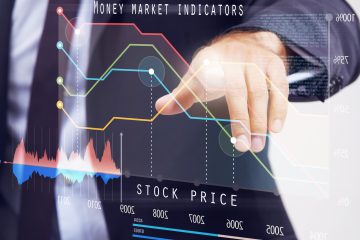Market development from our perspective - January 2024
By mid-year, a turning point in the financial markets might occur
As 2024 has so far been favorable for high-risk investments. Economic data, especially in the United States, have mostly exceeded expectations, and the global disinflation trend remains intact. The current environment resembles an “optimal” scenario, benefiting both companies and central banks, thus favoring the stock market.
The positive trend for stocks is expected to continue for now, supported by fundamental and technical factors. Global stock markets could reach new highs. However, government bond yields might increase in the short term before the inflation data for February leads to stabilization. A volatile sideways movement for government bonds is likely.
The favorable environment for risk investments may not last throughout the year. A regime change is expected by the summer, although its direction is still uncertain. A potential slowdown in U.S. growth in the second half of the year could also impact the Eurozone, while companies might struggle to raise prices, reinforcing the disinflation trend.
In case of an economic slowdown, central banks could lower interest rates to a neutral level, but not much lower. Government bond yields might slightly decrease unless there’s a significant downturn in the global economy.
A possible baseline scenario for stock markets foresees a slowdown in the global economy without a recession. However, prospects could worsen as analysts might have to lower their optimistic profit estimates, exacerbated by high valuations of tech stocks, excessive optimism, and one-sided positioning.
Other high-risk investments have also seen significant gains recently, but uncertainty about the global economy might trigger a reversal. In the event of a U.S. recession, negative impacts could be limited, especially for conservative bonds.
A significant risk scenario is that the U.S. economy proves more resilient than expected and that restrictive monetary policy measures do not take effect. This could lead to rising inflation rates before the U.S. Federal Reserve has little incentive to ease its monetary policy.
In the risk scenario, stocks could come under pressure, while high-quality corporate bonds might hold up. Winners could include commodities and inflation-indexed government bonds.
Overall, uncertainty in the financial markets is high, necessitating careful observation of economic development and flexibility in strategy.
In conclusion, it can be said that, after a strong start to the year, stocks might come under pressure, supported by both our baseline and risk scenarios. Potential headwinds could come from a slowdown in economic growth or renewed inflation concerns. The outlook for government bonds is more complex: in the event of a global economic slowdown, yields could continue to fall, while in the risk scenario of an inflation boom, the opposite could occur. There is a high uncertainty about being caught off guard this year. Especially for government bonds, careful observation of economic development and great flexibility in strategy are necessary.
Disclaimer: This assessment is not an offer to buy or sell and does not constitute an invitation to buy or sell financial instruments or a personal recommendation (investment advice) in connection with financial instruments. Any general recommendations are an expression of the FI Group’s expectations based on current market conditions. The recommendations are therefore not based on fundamental analytical facts, and thus this assessment alone cannot form the basis for investment decisions. In connection with specific investments, the FI Group always recommends consulting specific advisors. The FI Group recommends that entrepreneurs seek individual advice on current market conditions.
Investments are associated with a risk of financial losses. Neither historical returns and price developments nor forecasts for the future can serve as a reliable indicator of future returns or price developments. The FI Group is not liable for any losses arising directly or indirectly from action taken solely on the basis of this assessment.
The information contained in this assessment is based on sources that the FI Group believes to be reliable. However, the FI Group accepts no liability for defects, including errors in the sources, printing errors or calculation errors or changed conditions.
